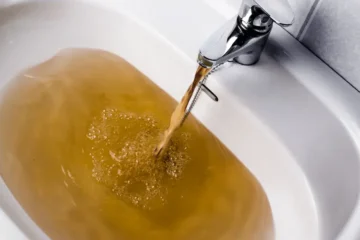Embracing the natural elements in your well water is a common experience, but when it comes to brown hues, safety concerns arise. In this comprehensive article, we delve into the question: Is It Safe To Bathe In Brown Well Water?
We simplify the complexity by offering expert insights, sharing personal experiences, and providing valuable information to help you navigate this sometimes confusing subject.
Is It Safe To Bathe In Brown Well Water?
If the brown color is due to iron or manganese, it is generally safe to bathe in the water. However, it’s essential to consider other potential contaminants that may be present in well water, such as bacteria, viruses, or other pollutants. If you have concerns about the water quality, it’s advisable to have the well water tested.
Experiences Matter: Is It Safe To Bathe In Brown Well Water?
1. Real Life Stories
Discover firsthand experiences from individuals who have bathed in brown well water. Their narratives provide a personal touch, shedding light on the safety aspects and any unforeseen consequences.
2. Expert Opinions
Tap into the expertise of professionals in water quality. Gain insights from specialists who offer guidance on the safety measures, potential risks, and necessary precautions when dealing with brown well water.
Safety Measures for Bathing with Brown Well Water
I strongly advise against bathing in brown well water unless you are absolutely certain of the cause and have taken steps to address it. Brown well water can indicate the presence of harmful contaminants like bacteria, algae, or iron in high concentrations.
Here are some safety measures to take if you must bathe in brown well water:
Before Bathing
1. Identify the cause of the discoloration
The first step is to determine why your well water is brown. Common culprits include: Iron or manganese: This is the most common cause and usually harmless in small amounts, though the water may stain your fixtures and have a metallic taste.
2. Bacteria or algae
This can be harmful and cause skin irritation, respiratory problems, and even gastrointestinal illness.
3. Rust
Rusty pipes can cause brown water, which may indicate problems with your well system.
4. Tannins
Natural organic matter from decaying leaves and plants can cause brown water, usually harmless but unpleasant.
5. Test your water
If you suspect any contamination, get your water tested by a certified laboratory immediately. This will help you determine the specific contaminants present and the level of risk involved.
6. Treat the water
If the test results show harmful bacteria, you will need to treat the water before using it for bathing. This can be done with boiling, chlorination, or UV filtration.
While Bathing
1. Take a short bath
Limit your bath time to minimize exposure to any contaminants.
2. Avoid getting water in your eyes, mouth, or nose
This can help prevent the entry of harmful bacteria.
3. Shower instead of bathing
Showers use less water and are generally considered safer than baths, especially for young children and pregnant women.
4. Rinse thoroughly with clean water afterwards
After bathing, rinse yourself thoroughly with clean water from a safe source.
Additional Tips To Bath with Brown Well Water
1. Install a water filter
A whole house water filter can help remove contaminants from your well water, making it safe for bathing and other uses.
2. Maintain your well system
Regularly service and maintain your well system to prevent problems that can lead to brown water.
Conclusion
Is It Safe To Bathe In Brown Well Water? is a nuanced question with multifaceted answers. By combining expert opinions, personal experiences, and actionable tips, this article aims to equip you with the knowledge needed to make informed decisions about your well water usage. Remember, safety comes first, and understanding the complexities of brown well water ensures a secure and enjoyable bathing experience.
FAQs
Can I use brown well water for washing clothes or dishes?
While it’s not advisable for consumption, using brown well water for non-consumable purposes is generally considered safe.
How often should I test my well water?
Annual testing is recommended, but more frequent testing may be necessary if you notice any changes in water quality.
Are there natural ways to improve well water quality?
Yes, implementing home remedies like aeration and installing basic filtration systems can help improve well water quality.
What are the long-term effects of bathing in brown well water?
Prolonged exposure may lead to skin issues and other health concerns. Addressing the water quality is essential for long-term well-being.
Is it possible to eliminate the brown color from well water?
Yes, with the right treatment methods, it’s possible to eliminate the discoloration and improve the overall quality of well water.






[…] hardness of well water depends on factors like local geology and well depth. Even though well water isn’t naturally hard, drawing it directly from the ground can lead to mineral buildup, […]